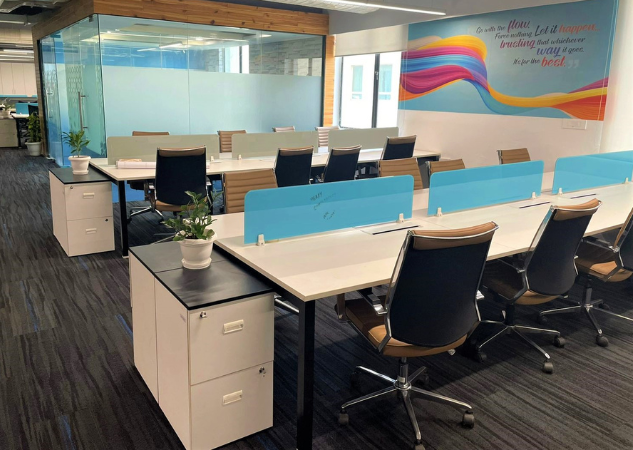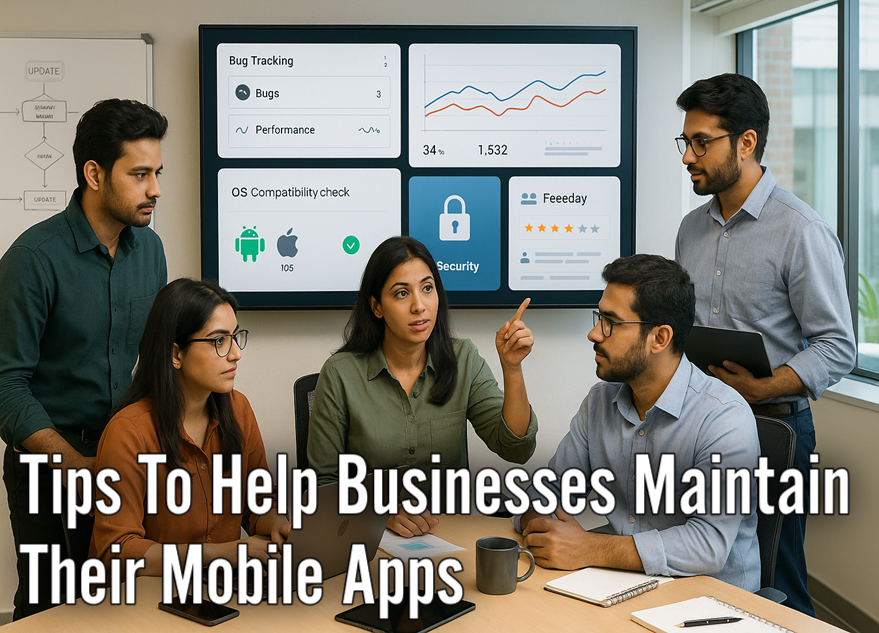Maintaining a mobile app is crucial for businesses to ensure seamless user experiences, retain customers, and stay ahead in a competitive market. With constant updates, evolving user needs, and new technologies, keeping your app in top shape requires strategic planning and regular upkeep. In this blog, we’ll share essential tips to help businesses effectively manage and maintain their mobile apps, from optimizing performance to implementing user feedback. Whether you’re a startup or an established enterprise, these tips will help you keep your app running smoothly and meeting user expectations.
💡 Are you looking for Coworking space in Gurgaon, Noida or Delhi? We are just a call away.
Call Now: 08999 828282
10 Best Tips to Help Businesses Maintain Their Mobile Apps
- Regular Updates and Bug Fixes
- Monitor App Performance
- Stay Compatible with New OS Versions
- Enhance Security
- Optimize for User Experience
- Manage App Dependencies
- Implement a Testing Strategy
- Monitor User Feedback
- Plan for Scalability
- Budget for Maintenance

1. Regular Updates and Bug Fixes
One of the most fundamental aspects of app maintenance is to ensure regular updates. These updates should not only include new features but also address bugs and performance issues. Implement a system for tracking bugs and user feedback to prioritize fixes and enhancements. Regular updates help in maintaining user trust and satisfaction by ensuring the app runs smoothly and efficiently.
2. Monitor App Performance
App performance is crucial for user experience. Use analytics tools to monitor the app’s performance, including loading times, crash reports, and user engagement metrics. Regularly review these metrics to identify areas that need improvement. Performance monitoring helps in identifying potential issues before they impact users significantly.
3. Stay Compatible with New OS Versions
Mobile operating systems frequently release new versions with updated features and security patches. Ensure your app remains compatible with the latest OS updates by testing it on various devices and OS versions. This prevents issues related to incompatibility and ensures your app provides a consistent experience across different platforms.
Also Read: 10 App-Building Mistakes Companies Make & How To Avoid Them
4. Enhance Security
Security is a major concern for users and businesses alike. Regularly update your app’s security features to protect user data and prevent vulnerabilities. Implement security patches, monitor for any breaches, and comply with best practices in data protection. Regular security reviews and updates help in safeguarding your app against potential threats.
5. Optimize for User Experience
User expectations and preferences can change over time. Regularly review user feedback and conduct usability testing to ensure your app continues to meet user needs. Incorporate user suggestions and adapt the app’s design and functionality based on current trends and user behavior.
6. Manage App Dependencies
Mobile apps often rely on third-party libraries and APIs. It’s important to keep track of these dependencies and update them as needed. Outdated libraries can lead to security vulnerabilities and performance issues. Regularly review and update your app’s dependencies to ensure they are current and secure.
7. Implement a Testing Strategy
A robust testing strategy is essential for maintaining app quality. Implement both manual and automated testing to identify and fix issues before they affect users. Regularly test the app on different devices and OS versions to ensure compatibility and performance.
8. Monitor User Feedback
User feedback provides valuable insights into how your app is performing in real-world scenarios. Monitor app reviews, ratings, and feedback channels to understand user concerns and preferences. Address common issues and implement features that users request to improve overall satisfaction.
💡 SMBs looking for HR, Marketing, Technology and Funding solutions for their business.
Call Hello Jarvis 994 8000 800
9. Plan for Scalability
As your user base grows, your app should be able to handle increased load and demand. Plan for scalability by optimizing your app’s architecture and infrastructure. Regularly review and update your app’s backend systems to ensure they can support growth and maintain performance.
10. Budget for Maintenance
Effective app maintenance requires a dedicated budget. Allocate resources for regular updates, bug fixes, performance monitoring, and security enhancements. Investing in maintenance ensures your app remains functional, secure, and competitive in the market.
Maintaining a mobile app is an ongoing process that requires attention to detail and a proactive approach. By following these tips, businesses can ensure their apps continue to provide a high-quality user experience, stay secure, and remain competitive. Regular maintenance not only helps in addressing current issues but also prepares your app for future challenges and opportunities. Set your office at The Office Pass (TOP) co-working spaces available in Delhi and NCR. TOP offers all the facilities required by businesses all under one roof at cost-effective pricing. Contact us for more details at 08999 828282.
FREQUENTLY ASKED QUESTIONS (FAQS):
Question: Why is it important to maintain a mobile app?
Answer: Maintaining a mobile app is crucial to ensure it remains functional, secure, and up-to-date. Regular updates help fix bugs, add new features, and adapt to changes in technology, which keeps users satisfied and engaged.
Question: How often should I update my mobile app?
Answer: It’s good to update your app at least every 2-3 months. However, the frequency can depend on your app’s complexity and user feedback. Regular updates help address issues and introduce new features.
Question: What should I include in an app update?
Answer: App updates should include bug fixes, security patches, performance improvements, and sometimes new features or design changes. Regular updates keep your app running smoothly and keep users happy.
Question: How can I fix bugs in my mobile app?
Answer: To fix bugs, monitor user feedback, conduct regular testing, and use bug-tracking tools. Address issues promptly to prevent them from affecting user experience.
Question: How can I ensure my app is secure?
Answer: To keep your app secure, regularly update it with the latest security patches, use encryption for data protection, and conduct security audits. This helps protect user data and prevents vulnerabilities.
Question: What role does user feedback play in app maintenance?
Answer: User feedback is vital for identifying issues and understanding user needs. Regularly review feedback to address problems and make improvements that enhance the user experience.
Question: How can I improve app performance?
Answer: To improve performance, optimize code, reduce app load times, and ensure compatibility with various devices. Regular testing and updates can also help maintain good performance.
Question: What should I do if my app crashes?
Answer: If your app crashes, investigate the cause by checking crash reports and logs. Fix the issues promptly and release an update to address the problem and improve stability.
Question: How can I keep up with new technology trends for my app?
Answer: Stay informed about technology trends by reading industry news, attending conferences, and following relevant blogs. This helps you keep your app current and competitive.
Question: What are the costs involved in maintaining a mobile app?
Answer: Costs can include development and testing, server fees, updates, and bug fixes. Budgeting for ongoing maintenance ensures that your app remains functional and up-to-date over time.



